Columbia’s rental market offers consistent opportunity thanks to its mix of students, professionals, and families seeking housing in a growing city. Demand may be strong, but profit isn’t automatic. A single vacancy that stretches too long, a roof repair, or an unexpected property tax increase can strain even experienced landlords.
This is why budgeting plays such an important role in rental success. A budget is more than a list of numbers—it’s a framework that shields income, prepares for surprises, and supports long-term growth. At PMI Columbia Riverbanks, we help local landlords strengthen their financial strategies, from optimizing collections to streamlining financial reporting. For many, success begins with addressing the basics like improving rent collection to create steady monthly cash flow.
Key Takeaways
- Conservative income estimates reduce the risk of overestimating profits.
- Emergency reserves provide protection when costly repairs arise.
- Upgrades increase tenant satisfaction and justify higher rental rates.
- Tax planning throughout the year saves thousands in deductions.
- Professional support simplifies scaling and keeps portfolios organized.
Keep Income Projections Realistic
Many landlords fall into the trap of calculating income based only on gross rent. For example, a home rented at $1,800 monthly seems to generate $21,600 a year. But when you factor in a 5% vacancy allowance, the figure drops to around $20,520.
Even in Columbia, where rental demand is strong, tenant turnover and delays in filling vacancies are inevitable. By using conservative income projections, landlords create a safety buffer that keeps cash flow stable when properties aren’t fully occupied.
Three tips for realistic estimates
- Include at least a 5% vacancy adjustment in every budget.
- Compare projected rent to actual market data in your neighborhood.
- Consider seasonal demand shifts, particularly around university schedules.
Budget for the True Costs of Rental Ownership
Profitability doesn’t come from rent alone—it comes from planning for every expense tied to a property.
Fixed costs include:
- Mortgage payments
- Insurance premiums
- Property taxes
Variable costs often include:
- Maintenance and repairs
- Pest control, lawn care, and turnover cleaning
- Utilities when included in the lease
- Professional management fees
Many landlords initially see management fees as a cost to avoid. Yet PMI Columbia Riverbanks clients often find these services pay for themselves. By reducing vacancies, screening tenants effectively, and providing financial oversight, professional management improves profitability over time.
Protect Your Cash Flow with a Reserve
No matter how new or well-maintained a property is, unexpected expenses will happen. Columbia’s climate brings heavy summer storms, hot weather that strains HVAC units, and occasional plumbing surprises.
By setting aside 5–10% of monthly rent into a dedicated reserve, landlords ensure emergencies don’t derail financial plans. Instead of draining personal savings, you can cover sudden costs while keeping your investment on track.
Make Upgrades That Deliver Returns
Some expenses should be treated as investments. Upgrades improve tenant satisfaction, increase rental value, and reduce turnover.
Upgrades that pay off include:
- Energy-efficient appliances that lower tenant bills
- Durable flooring and fresh paint for updated interiors
- Smart locks and home security features for safety and convenience
- Landscaping improvements to boost curb appeal
When paired with modern leasing strategies, these updates help fill vacancies faster and attract long-term tenants willing to pay premium rents.
Track Finances with the Right Tools
Budgets are only as good as the records that support them. Paper notes and generic spreadsheets often lead to overlooked expenses and missed deductions.
PMI Columbia Riverbanks provides landlords with clear owner statements that highlight income versus expenses, produce tax-ready documentation, and give visibility into portfolio performance. With reliable reporting, landlords can make confident, data-driven decisions year-round.
Budget with Taxes in Mind
Taxes can take a large bite out of rental income if they’re not part of your budget. Fortunately, there are multiple deductions available to landlords:
- Mortgage interest – usually the largest deductible expense.
- Management fees – fully deductible as operating costs.
- Repairs – deductible in the year they’re incurred.
- Travel expenses – mileage for inspections and maintenance trips may qualify.
- Depreciation – spreads property value over time for annual deductions.
By planning for these deductions throughout the year, landlords reduce tax season stress and maximize savings.
Scale Without Losing Control
As portfolios expand, complexity grows. More tenants, more repairs, and more financial records can overwhelm landlords without the right systems.
A per-property budget allows owners to track which rentals are performing best and which need adjustments. Bundling services like pest control or lawn care across multiple properties also reduces costs. With PMI Columbia Riverbanks managing operations, scaling becomes streamlined and efficient.
Treat Budgeting as a Year-Round Priority
Budgeting isn’t a once-a-year task. It’s a living process that adapts as rental conditions change. By reviewing quarterly reports, tracking expenses, and adjusting strategies regularly, Columbia landlords can keep income stable and growth sustainable.
Building Stronger Investments Through Planning
Rental success doesn’t come from luck—it comes from preparation. PMI Columbia Riverbanks helps landlords across Columbia design budgets that protect income, minimize risks, and support long-term portfolio growth. Take the next step toward financial stability by connecting with our team through our contact page and let us show you how smarter budgeting can transform your rental business.
FAQs
How much do property management fees cost in Columbia, SC?
Most property managers in Columbia charge between 8–12% of monthly rent. While this may feel like a reduction in income, services such as tenant screening, rent collection, and maintenance coordination typically improve profitability.
What are property tax rates in Columbia, SC?
Property tax rates in Columbia vary depending on the property type but generally average around 0.5–0.6% of assessed value. For a $250,000 rental home, this equals about $1,250–$1,500 annually. Including this in your budget ensures no surprises at tax time.
How much should landlords save for maintenance each year?
A good guideline is 1% of the property’s value annually. For a $300,000 home, that’s about $3,000. This covers everything from minor repairs to large replacements, like HVAC systems or roofs.
Do short-term rentals require different budgeting in Columbia?
Yes. Vacation rentals often require more frequent cleaning, higher utility usage, and more wear and tear. While nightly rates are higher, budgeting for these costs ensures profitability even with more frequent turnover.
What upgrades bring the best returns for Columbia rentals?
Upgrades that improve livability and efficiency bring the strongest ROI. Tenants value updated kitchens and bathrooms, energy-efficient appliances, smart locks, and outdoor landscaping that enhances curb appeal.



